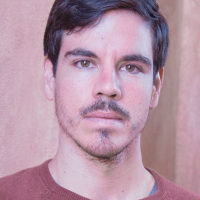In early 2016, 18 housing developers in the Pittsburgh area met with community organizations in an off-the-record meeting at Mayor Bill Peduto’s office to discuss the future of development in their city. They shared their concerns about the ebb and flow of working in both the market rate and affordable housing business across three discussions that clocked in just under an hour each.
Civic leaders considered those developers’ perspectives, and gathered input from 200 Pittsburgh residents, to create a five-point policy brief aimed at making Pittsburgh more racially and economically inclusive. Equitable Development: The Path to an All-In Pittsburgh — key architects were PolicyLink, Neighborhood Allies and Urban Innovation21 — was debuted Sept. 22 to an audience of 100 that included Peduto and city officials.
Since that fall day, the paper’s biggest actors have continued to solicit input from community leaders and residents in Pittsburgh’s traditionally disadvantaged neighborhoods, like the Hill District, and they’re hopeful they’ll start seeing real results in the form of new policies by 2017.
Sarah Treuhaft, a policy director at PolicyLink, says her organization has enough experience laying the groundwork for equity in other cities across the U.S. to really give this outline wings in Pittsburgh. She points to recent successes in Detroit, where PolicyLink’s partnership with the New Economy Initiative since 2009 has led to the launch of 1,600 new businesses — 39 percent of which are minority owned, and 32 percent of which are owned by women.
“Nobody wants another report with lofty goals that has no power,” Treuhaft says.
In October, at the People, Planet, Place, Performance (P4) conference held in Pittsburgh, 600 attendees and community advocates debated the mechanics of the All-In agenda. There was also a community meeting at the headquarters of a youth nonprofit in the Hill District called Center That CARES, where nearly 60 community stakeholders shared their two cents on how the plan should roll out.
And even with that much community input already on the table, the agenda’s leaders are hunting for more. “We want to do some surveys, because we know that everyone couldn’t attend those most recent meetings,” says Presley Gillespie, president of Neighborhood Allies. “Then it’ll be about garnering champions in the city and really looking at how we begin to seek out the [funding] resources.”
The policy brief specifies what Pittsburgh needs to correct at the legislative level in order to bring about its plainly summarized goals, like “Make all neighborhoods healthy communities of opportunity.” One recommendation: Follow up on an Affordable Housing Task Force’s urging in May to form a housing trust fund that benefits residents who make under 30 percent of the area median income, and enact a tax clause that protects low-income homeowners from property tax increases, like the one that exists in Philadelphia.
Treuhaft says housing policies are the biggest issues that come to mind when she thinks of what Pittsburgh needs to do to move forward. “Inclusionary zoning is something that came up as a high priority among community partners,” she says. “[The city is] also considering stronger tenant protections for homes that are subsidized, and trying to understand whether they could put in place stronger protections for unsubsidized properties.”
The brief also calls for giving more employment and entrepreneurial opportunities to disadvantaged communities and communities of color. To that end, PolicyLink and its stakeholders are using two approaches that they haven’t emphasized as strongly in past city-based equity initiatives: disaggregated data and far-reaching policy recommendations, which means bringing in as many voices to create inclusive policies that touch on as many city governance issues as possible. (Hence the “All-In” part of the agenda’s title.)
The holistic part is underscored by their ongoing tally of civic leaders and community members who’ve shared their input. They’ll collect data that tracks changes in economic mobility and housing issues through a project called the National Equity Atlas, which PolicyLink has built up through a partnership with the University of Southern California’s Program for Environmental and Regional Equity (PERE).
And when it comes to tracing just how successful the pursuit of this roadmap is, they’ll look to a points-system metric that was laid out during the P4 council. Each of the city’s targeted sections — “Economy,” “Housing,” “Air,” “Energy,” among eight others — come with bullet points that the city has to reach in order to gain points toward the implementation of the P4 plan.
“Has a Community Outreach Strategy been developed in collaboration with Recognized Community Organizations or other established community organizations?” is one bar that the city will have to check off to satisfy the P4 agenda. Pittsburgh also gets points if it pushes construction companies to create project labor agreements that target workers from disadvantaged communities.
And perhaps that will be the key of All-In Pittsburgh’s success. The city is driving toward fulfilling those outlines in the same way it’s driving toward the P4 outline and city plans from other policy recommendations, like what was laid out by the Affordable Housing Task Force and the Rockefeller Foundation’s Resilient Cities initiative.
Treuhaft says there’s been major progress because of Pittsburgh’s eager participation in the whole process, from the city to the neighborhood level. But they’re still building the thing as it moves along, and there’s no real concrete understanding at the moment of what it’ll look like when it reaches its apex. Still, she sees faith growing alongside the climb toward a solution. “When we started working there, there was definitely not that sense that change was possible,” she says. “By next year want to see more of that, and create a sense that change is happening — that it’s not just possible but it’s actually happening and progress is being gained.”
The Equity Factor is made possible with the support of the Surdna Foundation.

Johnny Magdaleno is a journalist, writer and photographer. His writing and photographs have been published by The Guardian, Al Jazeera, NPR, Newsweek, VICE News, the Huffington Post, the Christian Science Monitor and others. He was the 2016-2017 equitable cities fellow at Next City.

















